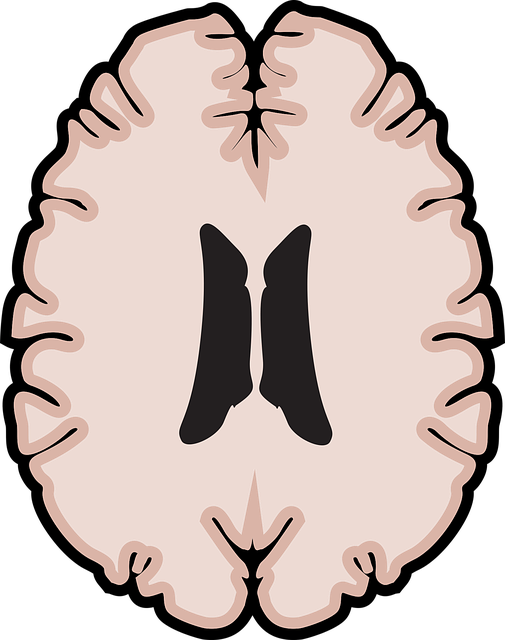Substance abuse is a complex issue driven by mental health factors and life stressors, addressable through Lafayette Anxiety Therapy's comprehensive approach. They identify personal triggers and root causes, providing therapy, education, and coping strategies to reduce reliance on harmful substances. By targeting anxiety, stress, and underlying conditions, their cognitive-based methods enhance resilience and promote healthier lifestyles. Support networks, lifestyle changes, and mindfulness practices, coupled with professional help like Lafayette Anxiety Therapy, empower individuals to manage mental health, avoid addiction, and improve overall well-being.
Substance abuse poses significant risks to individuals and communities, underscoring the need for proactive risk reduction strategies. This article explores comprehensive approaches to mitigate these dangers, focusing on understanding the complexities of substance abuse and its triggers. We delve into evidence-based methods like Lafayette Anxiety Therapy, a cognitive approach proven effective in prevention. Additionally, we highlight building supportive networks and adopting lifestyle changes as vital tools for fostering resilience against substance abuse.
- Understanding Substance Abuse and Its Risks
- Identifying Personal Triggers and Risk Factors
- Lafayette Anxiety Therapy: A Cognitive Approach to Prevention
- Building a Supportive Network for Resilience
- Lifestyle Changes and Coping Strategies for Risk Reduction
Understanding Substance Abuse and Its Risks

Substance abuse is a complex issue that can have severe consequences for individuals and communities alike. It’s crucial to understand that this behavior often stems from underlying mental health issues, such as anxiety or depression, which may be exacerbated by stressful life events. In many cases, people turn to substances as a means of coping, unaware of the significant risks associated with their actions. These risks span physical health problems, including organ damage and addiction, to psychological impacts like memory loss and impaired judgment.
Lafayette Anxiety Therapy, alongside Mental Health Education Programs Design and Mental Wellness Podcast Series Production, plays a vital role in addressing this challenge. Through therapeutic interventions, these programs aim to unravel the complex web of issues contributing to substance abuse. By fostering emotional healing processes, they empower individuals to develop healthier coping mechanisms, thereby reducing their reliance on harmful substances. This holistic approach not only treats the symptoms but also targets the root causes, ultimately contributing to improved mental wellness and risk mitigation.
Identifying Personal Triggers and Risk Factors

Identifying personal triggers and risk factors is a pivotal step in the journey toward substance abuse prevention. Lafayette Anxiety Therapy emphasizes the importance of self-awareness when it comes to understanding one’s emotional vulnerabilities. By recognizing specific situations, emotions, or people that trigger cravings or lead to harmful behaviors, individuals can proactively manage their risks. This process involves delving into one’s history, exploring past traumas, and identifying any underlying mental health conditions, such as anxiety or depression, which may contribute to substance abuse.
Emotional healing processes play a crucial role in mitigating these triggers. Through therapy and counseling, individuals learn effective coping mechanisms, conflict resolution techniques, and social skills training. These tools empower them to navigate challenging situations without resorting to substances for relief. By addressing the root causes of anxiety or stress, individuals can develop healthier responses, fostering a sense of resilience and control over their lives.
Lafayette Anxiety Therapy: A Cognitive Approach to Prevention

Lafayette Anxiety Therapy offers a cognitive approach to substance abuse prevention, focusing on addressing underlying anxiety and stress management. This method recognizes that many individuals turn to substances as a coping mechanism for anxiety, which can lead to a vicious cycle of addiction. By teaching effective strategies to manage and reduce anxiety, the therapy empowers individuals to make healthier choices and avoid relying on harmful substances.
Through individual counseling sessions, clients learn to identify triggers, challenge negative thought patterns, and develop healthy coping mechanisms. The cognitive approach also integrates compassion cultivation practices and social skills training, fostering a sense of self-compassion and improving communication skills. These techniques not only help in the prevention of substance abuse but also promote overall mental well-being, enabling individuals to navigate life’s challenges with resilience and without resorting to substance abuse as a crutch.
Building a Supportive Network for Resilience

Building a strong support network is an essential strategy for reducing risks associated with substance abuse. This involves surrounding oneself with positive influences and individuals who can provide encouragement, understanding, and accountability. For many, seeking professional help from Lafayette Anxiety Therapy or similar mental health services plays a pivotal role in this process. These therapies offer valuable tools to manage underlying issues, such as anxiety or depression, which often contribute to substance abuse. By addressing these root causes, individuals can develop healthier coping mechanisms and build resilience.
A supportive network can also include family, friends, and peer groups who understand the challenges of addiction. Encouraging open communication fosters a safe space where individuals can share their struggles without fear of judgment. Mental Health Policy Analysis and Advocacy groups further contribute by advocating for policies that promote access to treatment and support services, enhancing the availability of resources for those in need. This comprehensive approach, combining professional therapy, social connections, and policy awareness (Mental Health Awareness), equips individuals with the strength to resist substance abuse and make positive lifestyle changes.
Lifestyle Changes and Coping Strategies for Risk Reduction

Making lifestyle changes and adopting effective coping strategies are powerful tools for reducing risks associated with substance abuse. Individualized approaches, tailored to one’s unique needs and challenges, can significantly enhance overall well-being and resilience. For instance, integrating regular physical activity into daily routines not only promotes better health but also serves as a healthy distraction from potential triggers. Moreover, practicing mindfulness techniques, such as meditation or deep breathing exercises, can help individuals cultivate present-moment awareness, thereby reducing impulsive decisions that might lead to substance misuse.
Embracing therapy, like Lafayette Anxiety Therapy, offers valuable opportunities for self-exploration and emotional intelligence development. Through self-awareness exercises and targeted interventions, individuals gain insights into their thoughts, feelings, and behaviors, empowering them to manage stress, anxiety, or underlying mental health conditions effectively. By combining lifestyle modifications with evidence-based therapeutic practices, one can forge a path towards sustainable recovery and improved risk management in the context of substance abuse prevention.
Substance abuse carries significant risks, but proactive strategies can foster resilience. By understanding personal triggers, employing cognitive approaches like Lafayette Anxiety Therapy, building supportive networks, and adopting healthy lifestyle changes, individuals can effectively reduce their vulnerability. These comprehensive strategies empower people to make informed choices, promote well-being, and navigate life’s challenges without resorting to substance abuse.














